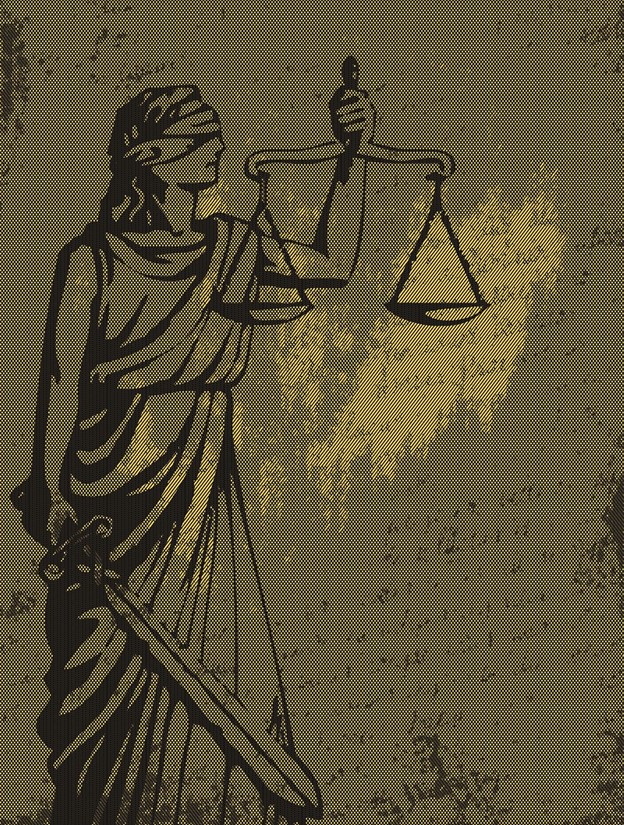We discussed Manhattan District Attorney Alvin Bragg’s indictment of Donald Trump. Then we dissected Special Counsel Jack Smith’s first federal indictment of the former President. We also reviewed the facts and charges Smith added to this first federal indictment. Next, we analyzed Smith’s second federal indictment of the 45th President.
Two federal indictments, one in Florida and another in Washington DC, as well as a New York City indictment would all be a heavy burden for any defendant, especially one who is running for President of the United States.
But wait – there’s more.
On August 14, 2023, “(f)ormer President Donald Trump was indicted…on racketeering, conspiracy and other charges by a grand jury in Fulton County, Georgia, the result of a more than two-year investigation…into potential 2020 election interference in that state. Eighteen other people, including Trump’s former lawyer Rudy Giuliani and former White House chief of staff Mark Meadows, were also indicted, accused of joining Trump in efforts to unlawfully change the outcome of the election.”
The indictment can be viewed here. Specifically, Trump and his co-defendants are alleged to have “unlawfully conspired and endeavored to conduct and participate in…a pattern of racketeering activity” while “associated with an enterprise” that allegedly violated Georgia law…Trump and the other defendants charged in this Indictment refused to accept that Trump had lost (the 2020 Presidential election), and they knowingly and willfully joined a conspiracy to unlawfully change the outcome of the election in favor of Trump.”
As described by PBS, “(t)he nearly 100-page indictment details dozens of acts by Trump or his allies to undo his defeat, including beseeching Georgia’s Republican secretary of state to find enough votes for him to win the battleground state; harassing an election worker who faced false claims of fraud; and attempting to persuade Georgia lawmakers to ignore the will of voters and appoint a new slate of electoral college electors favorable to Trump.”
“The yearslong probe of former President Donald Trump and his allies by Fulton County, Georgia, District Attorney Fani Willis may prove to be Trump’s toughest legal challenge yet,” ABC News breathlessly reports. Yet, despite their obvious glee at yet another Trump indictment, the mainstream media seems to recognize that the shine is off the apple here. “What was once unprecedented — a former president facing criminal charges — has fallen into a familiar cadence…Trump and his campaign will decry the charges. His campaign will likely fundraise off of these charges. Trump and his campaign continue to conflate his personal legal problems with the cause of his political movement, using the charges as a tool to gin up his base. It has been working. Numerous charges haven’t slowed his campaign yet.”
You can hear the disappointment loud and clear – “Darn it! Won’t anything stop this man?”
Donald Trump is a human being, not a relentless Juggernaut. Certainly, something, or some event (such as several losses in upcoming primaries) could potentially “stop him.” But this indictment by another local prosecutor, this time in Fulton County, Georgia, isn’t likely to cause the derailment of the runaway Trump train.
Who has brought this latest Indictment against the former President? According to the BBC, Fulton County, Georgia District Attorney Fani Willis was born “in Inglewood, California in 1971 (and) was raised primarily by her father, a criminal defense lawyer and member of the Black Panthers, the radical political party which championed black rights…(s)he graduated from the historically black college Howard University in 1993, before receiving a law degree from Emory University in Georgia in 1996…Ms Willis joined the Fulton County District Attorney’s office, where she served in several different divisions until 2018..(a)fter her time in the office ended, Ms Willis spent several years in private practice. Then, in 2020, she decided to go head-to-head with her former boss, six-term Fulton County District Attorney Paul Howard. She won in a runoff election with 73% of the votes, becoming the first black woman to serve as Fulton County’s top prosecutor.”
Unlike the Manhattan DA, Alvin Bragg, who “received more than $1 million in support from the Color Of Change PAC, a racial justice group which receives funding from (George) Soros” during his campaign, there isn’t any clear evidence that Willis is yet another “progressive DA.” Her office’s website includes a pledge to “provide an environment of mutual respect, regardless of race, color, religion, sex, national origin, sexual orientation, age, disability or gender identity,” however, there is also a statement of integrity, which reads “this office will now show a consistent and uncompromising adherence to strong moral and ethical principles and values.”
Further, unlike Bragg, who specifically campaigned on his plan “to personally focus on the high-profile probe into former President Donald Trump’s business practices,” there is scant evidence that Willis made similar overt promises during her race.
What Willis does bring to this prosecution, is a willingness to use racketeering charges indiscriminately against any and all defendants. In fact, it would seem that Willis only carries one hammer, which makes every criminal case look like a nail to her.
Similar to the federal RICO (Racketeer Influenced and Corrupt Organizations) law, under Georgia Code Section 16-14-4, “(a) It shall be unlawful for any person, through a pattern of racketeering activity or proceeds derived therefrom, to acquire or maintain, directly or indirectly, any interest in or control of any enterprise, real property, or personal property of any nature, including money. (b) It shall be unlawful for any person employed by or associated with any enterprise to conduct or participate in, directly or indirectly, such enterprise through a pattern of racketeering activity. (c) It shall be unlawful for any person to conspire or endeavor to violate any of the provisions of subsection (a) or (b) of this Code section.”
Judge John Wilson (ret.) served on the bench in NYC
The article concludes tomorrow
